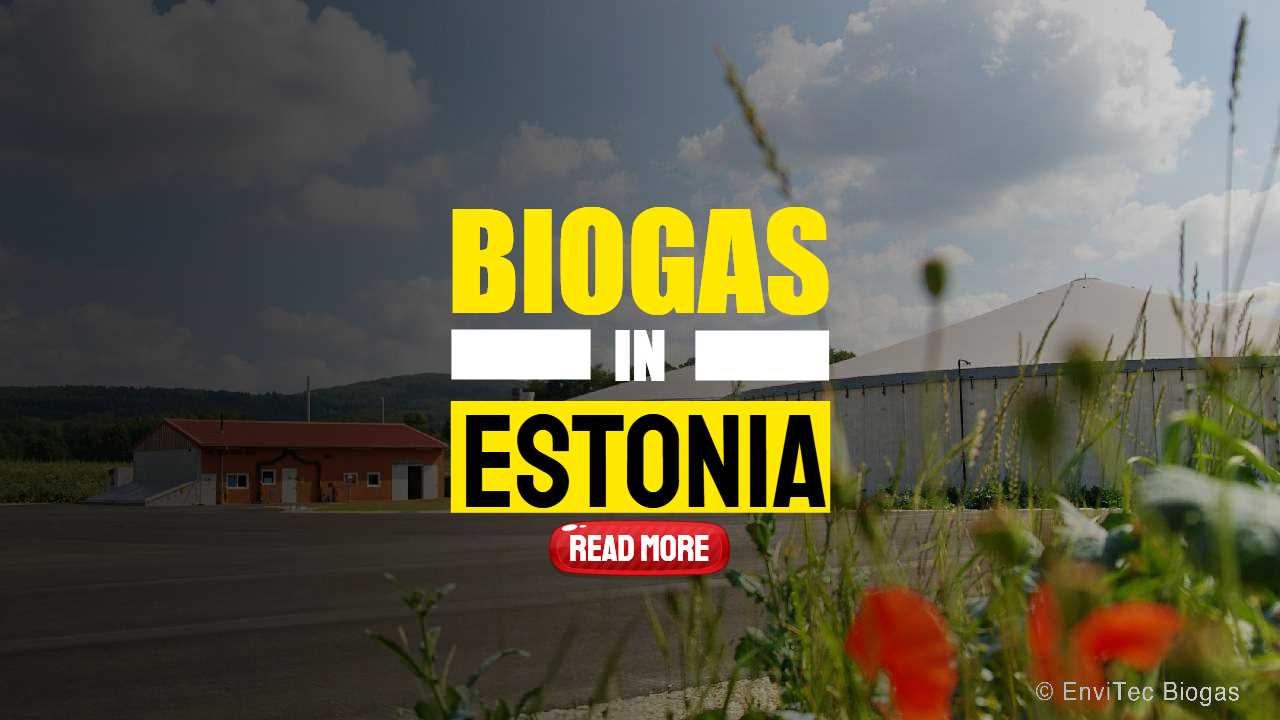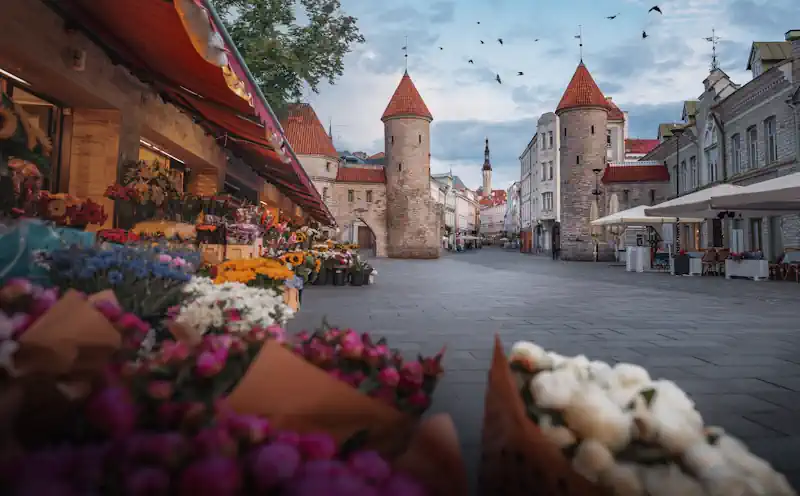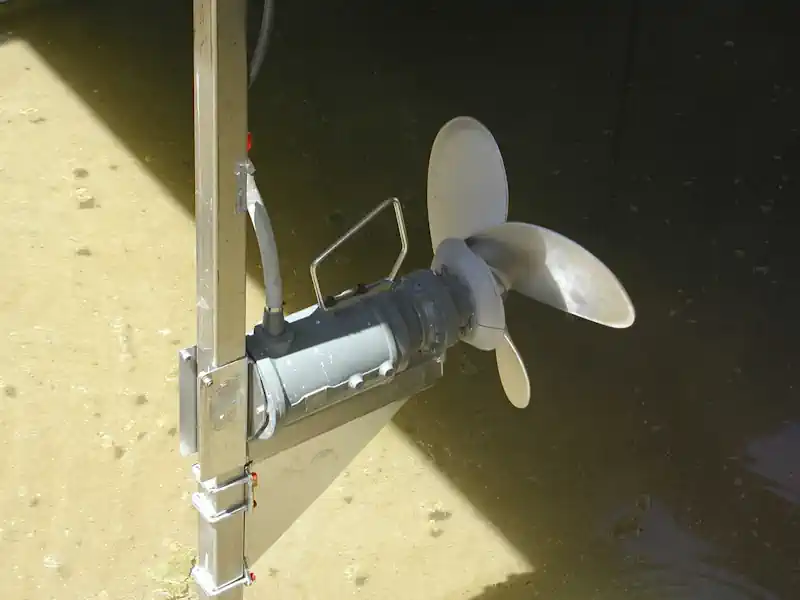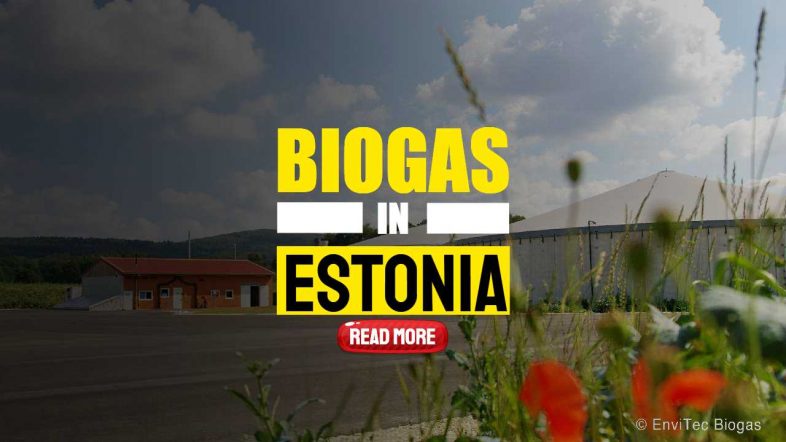In this article, we report on the ambitious expansion underway for biogas in Estonia, with big increases in production planned, especially for biomethane in transport and to meet EU Directives.
Introduction to Biogas in Estonia
Estonia has significantly shifted its energy focus towards renewable sources since joining the European Union. While oil shale was previously the primary energy source, the country now prioritises renewable energy development, particularly in the transport sector.
Renewable Energy in the Transport Sector
EU Renewable Energy Directive Compliance
- 2017 Status: Renewable energy usage in transport was only 1%.
- 2020 Target: Increase to 10% as per the EU Renewable Energy Directive (2009/28/EC).
- Strategies for Achievement: Mandating biofuel sales, boosting biomethane in vehicles, and encouraging high-renewable-content transportation biofuels.
Greenhouse Gas Emission Reduction
Directive 2009/30/EC requires a minimum 6% reduction in fuel supply emissions by the end of 2020, impacting Estonia's transport sector.
Government Initiatives
Since 2017, the Estonian government has actively promoted renewable energy, particularly biomethane, in transportation.

Biogas Production
Historical and Current Overview
- First Plant: Pärnu (1987) at a pig farm, later closed.
- 2017 Status: 17 operational plants categorised as follows:
- Agricultural waste: 15 plants
- Wastewater treatment: 7 Facilities
- Industrial water treatment: 3 plants
- Landfill gas: 5 plants
- Viljandimaa Development: A biogas facility is underway, with anticipated biomethane production starting in 2019.
National Development Plan and Potential
- NDPES 2030: Outlines biogas potential and action plans.
- Biogas Potential: Estimated at 633 million Nm3, with 21 million Nm3 from landfills.
- Biomethane Production: Could reach 380 million Nm3.
- Utilization: Power and heat generation, and transport sector fuel.
Utilization of Biogas in Estonia
Current Use
- Heat and Electricity: On-site generation at biogas plants.
- Transport Sector Plans: Enhancing biomethane use in vehicles.
Transport Sector Challenges
- Energy Efficiency: One of the lowest in the EU.
- Fuel Intensity: High fuel usage per GDP unit.
- Population Density Impact: Low density contributes to transport fuel intensity.
Upcoming Projects
The production of biogas in Estonia will be increased by commissioning new anaerobic digestion facility projects to deliver the biomethane required to power:
- Biogas-Buses: Tartu and Pärnu are planning to switch to biomethane buses.
- Fuel Stations: 25 natural gas stations are being developed for future biomethane distribution.
Financial Support Systems
Investment Support
- Biogas Plant Construction: Funding 15–40% of costs, with a 22.5 million euros yearly budget.
- Biomethane Production Units: 28 million euros annually, covering up to 35% of expenses.
- Biomethane Buses for Local Governments: 28 million euros per year, funding up to 30% of costs.
- Biomethane Station Building: Annual budget of 2.23 million euros, financing up to 35%.
Biomethane Sales Marketing Support
- Elering AS Role: Manages biomethane sales to the transportation sector, pricing at 100€/MWh below the previous month's natural gas market average.
Biogas in Estonia: A Conclusion
Estonia's commitment to renewable energy, particularly in the transport sector, is evident in its efforts to increase biomethane usage and meet EU directives. The development of biogas plants and financial support systems demonstrates a significant move towards sustainable energy solutions.
Press Release:- Landia Update August 2025:

Strong Renewable Demand for Landia pumps and mixers in Estonia
Landia has won important new orders to provide its proven pumps and mixers to two major biogas and biomethane plants in Estonia.
For a 0.7MW biogas and cogeneration plant, 11 Landia mixers (all 11kW) are to be installed in primary and post-digestion tanks that have a feedstock of wet manure and food waste.

Meanwhile, at a plant that produces clean, sustainable biomethane from a biomass that includes animal by-products, six Landia Chopper Pumps will play a vital role in reducing the particle size of feedstock.
Two Landia mixers will also become a crucial part of the blending process.
Thorkild Maagaard, Landia’s Global Sales Director, commented:
“These new pumps and mixers will provide unrivalled performance and superior total cost of ownership for these challenging applications.
“Our GasMix digester mixing system for biogas plants also continues to be in strong demand throughout Europe, North America, Asia and Australia.”
Press Release April 2021:
Biogas in Estonia: Gas Network Operator AS Eesti Gaas Awards Work to Envitech Biogas
Biogas in Estonia is moving forward. German company Envitec Biogas has entered the Estonian market with orders for three biogas upgrading plants in not much over 12 months.
The company marked its debut in the country with a double order for its Envithan gas upgrading facilities. Both units will be extensions of existing biogas facilities. During the estimated six-month construction project, the customer, AS EG Ehitus, a subsidiary of gas network operator AS Eesti Gaas, has completed all the necessary pipe-laying work.
Just six months separated order placement and the first feed-in into the Estonian gas network for the two latest gas upgrading plants from the German biogas plant operator and technology provider Envitec Biogas (photo courtesy Envitec). A joint venture of regional energy companies runs both biogas upgrading plants.
While the German plant engineering company has already completed seven biogas plants in neighbouring Latvia, gas upgrading plants are a new kind of venture for the Baltics The Republic of Estonia is the smallest Baltic State, with just 1. 3 million inhabitants—roughly the same population as Lower Saxony in Germany.
AS EG Ehitus has now ordered its third plant from Envitec Biogas. The gas upgrading plant and CNG (compressed natural gas) compressor unit will be put into service at the existing biogas plant no later than May 2021.
Anaerobic digestion plays an important role in producing renewable energy. Countries all over the world are looking towards sustainable and clean energy as well as reducing Greenhouse Gas (GHG) emissions.
A nation such as Estonia will need to build biogas plants if they are to meet their Net-Zero carbon emissions targets in the next few years. The need to move toward Net-Zero carbon emissions is assumed to be a significant factor favouring the growth of anaerobic digestion plants in Estonia, as it is elsewhere.
The following is the Envitech Press Release about their latest Estonian Biogas Plant commission:
[First published in April 2021. Updated 26 January 2024 and August 2025.]





